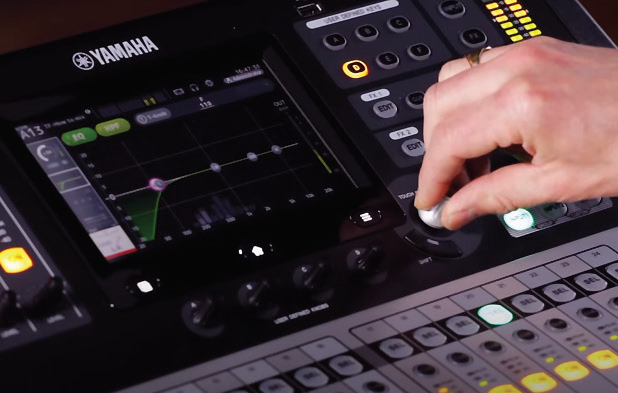Community, Leadership, Experimentation, Diversity, & Education
Pittsburgh Arts, Regional Theatre, New Work, Producing, Copyright, Labor Unions,
New Products, Coping Skills, J-O-Bs...
Theatre industry news, University & School of Drama Announcements, plus occasional course support for
Carnegie Mellon School of Drama Faculty, Staff, Students, and Alumni.
CMU School of Drama
Friday, October 30, 2020
The Mighty HPF: Getting Up To Speed On This Absolutely Essential Mixing Tool
ProSoundWeb: I was watching something on TV recently, and after hearing multiple “plosives” (P’s and B’s and T’s) just booming away through my speakers, I quipped, “Can we please get a high pass on that mic!”
Then I realized there still may be a number of less-experienced sound techs out there who are not yet acquainted with the high-pass filter (HPF). Allow me to make the introduction.
Subscribe to:
Post Comments (Atom)

5 comments:
For most processes in theatre, it is best to learn by doing. Sound is no different. Although I am already familiar with the high pass filter, I find that trying to explain concepts in this format is not always helpful. Written text is no match for actually being able to sit down and play with the tool you are talking about. The high pass filter is a pretty good tool, though. The high pass filter quite literally lets your high frequencies pass, hence HIGH pass, and stops low frequencies. From looking at the eq chart though, you notice that it only affects your low frequencies which can make the name high pass all the more confusing. You might ask yourself “if it is a high pass filter, why is it changing the lower frequencies?” but having the knowledge that it is passing high frequencies has it make more sense. If it were up to me, I would call it a cut low filter as it explains what is on the eq chart much better.
This article strikes a great balance between being an introduction to a specific tool and a brief tour through the author's personal philosophy on how to use it. I have worked events intermittently throughout my career, and I have had to implement some basic PA systems (and some that were well over my head) using only knowledge that I obtained from frequently standing next to audio engineers. There have been many times that I have heard plosives and wanted to fix it, but have lacked the knowledge required to do so. Although I think it is unlikely that I will find myself in a similar position soon enough to remember this article, I doubt I will forget the term "plosives." It is said that identifying your problems is the first step to a solution...I hope a search brings me through to an article that provides the basics as efficiently as this one.
This article strikes a great balance between being an introduction to a specific tool and a brief tour through the author's personal philosophy on how to use it. I have worked events intermittently throughout my career, and I have had to implement some basic PA systems (and some that were well over my head) using only knowledge that I obtained from frequently standing next to audio engineers. There have been many times that I have heard plosives and wanted to fix it, but have lacked the knowledge required to do so. Although I think it is unlikely that I will find myself in a similar position soon enough to remember this article, I doubt I will forget the term "plosives." It is said that identifying your problems is the first step to a solution...I hope a search brings me through to an article that provides the basics as efficiently as this one.
I’ve known about the HPF for some time and I enjoy the term plosives. I have a new term to use now. I’m not a fully trained sound engineer so this article was a really great way to ease into the topic of high pass filters. I’ve used them before but only to a marginal success. I do like what Jacob said about renaming it since the term can be a bit confusing, but I also understand that it is a pass filter, allowing certain frequencies to pass through something. These articles are always a great way to learn little tips and tricks along the way and unless one is in an academic program, learning by doing is usually the only option. I’m glad for these articles and now I have a better understanding of HPF and will use this as a jumping off point to expand upon my knowledge base. One never knows when they will need this little bit of skill.
I don’t think I’ve clicked on a sound article on the green page in two years but I have to say I’ve enjoyed this article. For someone who has worked sound and PA systems in the past and has what I would say is a very basic knowledge of sound systems I think this was a great article for people to learn more about a more advance tool and technique. I remember working events constantly in High school and having serious issues with Ps, Bs, and Ts not knowing that they were a common problem I of course went to YouTube. Maybe it was just what I was looking for or what I was using to look for it but I wasn’t able to find anything near as helpful as this article. That being said I do wish it were a little longer so that I could be better informed to how I could actually solve my own problems.
Post a Comment